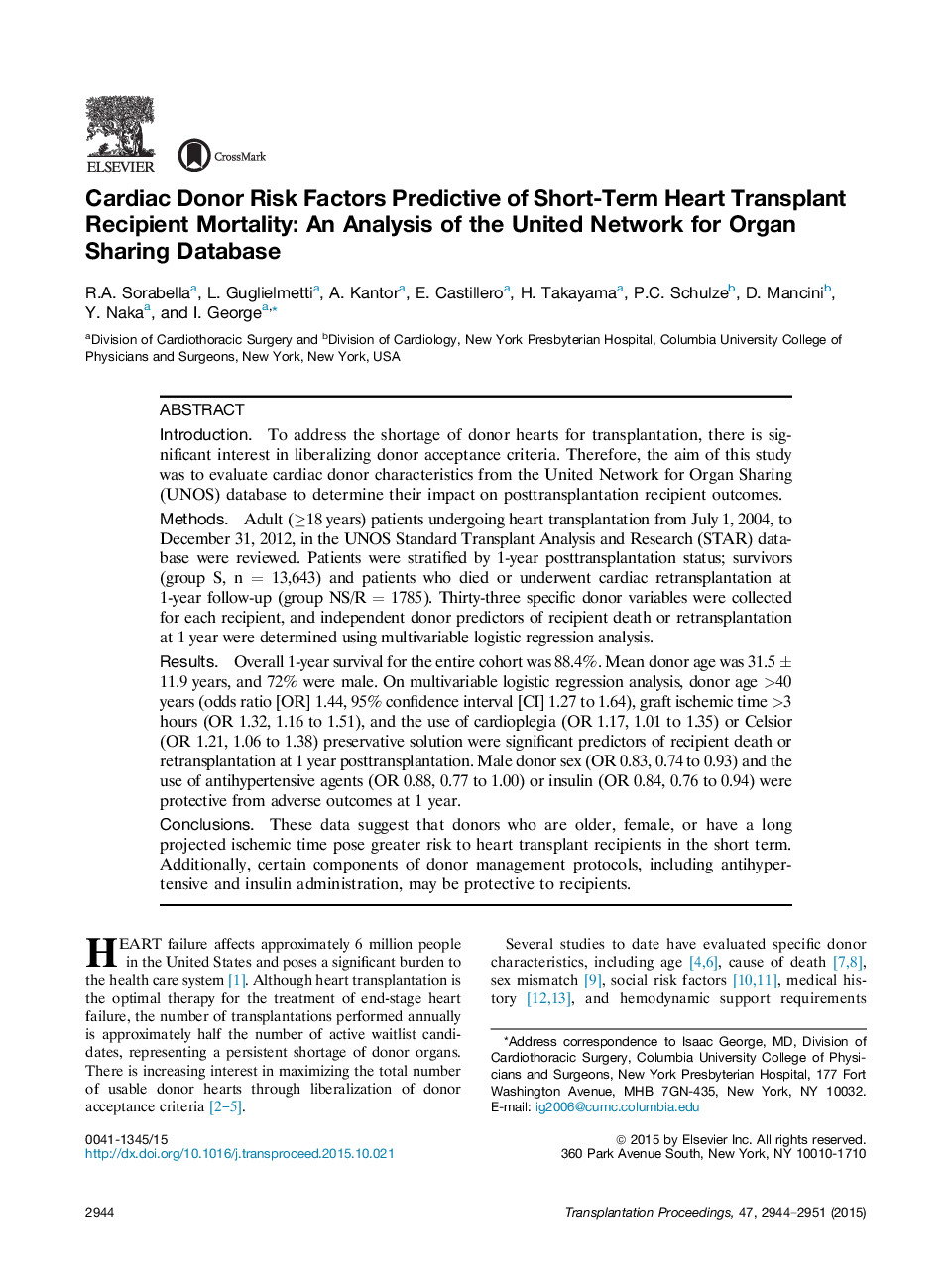| کد مقاله | کد نشریه | سال انتشار | مقاله انگلیسی | نسخه تمام متن |
|---|---|---|---|---|
| 4255850 | 1284500 | 2015 | 8 صفحه PDF | دانلود رایگان |
• This study examines the effect of donor characteristics on heart transplantation outcomes.
• This study uses the United Network for Organ Sharing Database.
• Donor age, graft ischemic time, and preservative solution are risk factors.
• Male sex and periprocurement management factors are protective.
IntroductionTo address the shortage of donor hearts for transplantation, there is significant interest in liberalizing donor acceptance criteria. Therefore, the aim of this study was to evaluate cardiac donor characteristics from the United Network for Organ Sharing (UNOS) database to determine their impact on posttransplantation recipient outcomes.MethodsAdult (≥18 years) patients undergoing heart transplantation from July 1, 2004, to December 31, 2012, in the UNOS Standard Transplant Analysis and Research (STAR) database were reviewed. Patients were stratified by 1-year posttransplantation status; survivors (group S, n = 13,643) and patients who died or underwent cardiac retransplantation at 1-year follow-up (group NS/R = 1785). Thirty-three specific donor variables were collected for each recipient, and independent donor predictors of recipient death or retransplantation at 1 year were determined using multivariable logistic regression analysis.ResultsOverall 1-year survival for the entire cohort was 88.4%. Mean donor age was 31.5 ± 11.9 years, and 72% were male. On multivariable logistic regression analysis, donor age >40 years (odds ratio [OR] 1.44, 95% confidence interval [CI] 1.27 to 1.64), graft ischemic time >3 hours (OR 1.32, 1.16 to 1.51), and the use of cardioplegia (OR 1.17, 1.01 to 1.35) or Celsior (OR 1.21, 1.06 to 1.38) preservative solution were significant predictors of recipient death or retransplantation at 1 year posttransplantation. Male donor sex (OR 0.83, 0.74 to 0.93) and the use of antihypertensive agents (OR 0.88, 0.77 to 1.00) or insulin (OR 0.84, 0.76 to 0.94) were protective from adverse outcomes at 1 year.ConclusionsThese data suggest that donors who are older, female, or have a long projected ischemic time pose greater risk to heart transplant recipients in the short term. Additionally, certain components of donor management protocols, including antihypertensive and insulin administration, may be protective to recipients.
Journal: Transplantation Proceedings - Volume 47, Issue 10, December 2015, Pages 2944–2951
